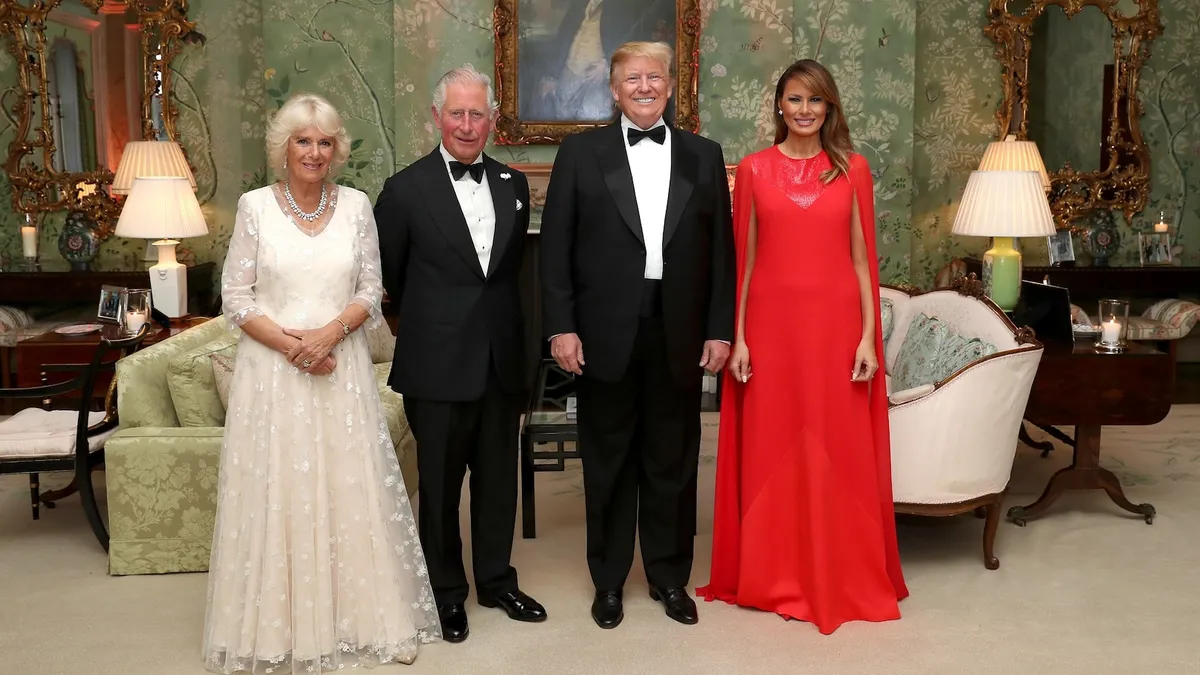
On Tuesday, President Donald Trump and First Lady Melania Trump will embark on a significant journey to the United Kingdom for a historic second state visit. This visit marks a pivotal moment in U.S.-U.K. relations as Trump becomes the first elected political leader in modern times to be honored with two state visits hosted by a British monarch. The state visit not only underscores the strength of the ties between these two nations but also serves as an opportunity to deepen diplomatic relations with one of America's closest allies.
During a background call with reporters on Monday, White House officials emphasized that this visit is designed to highlight the enduring bond between the United States and the United Kingdom. This historic state visit will not only renew the special relationship shared by both nations but will also commemorate the upcoming 250th anniversary of the founding of the United States.
The visit promises to be an event filled with grandeur, reminiscent of Trump’s first state visit to the U.K. However, there are notable changes. This time, the events are set to unfold at Windsor Castle, contrasting with the previous gathering at Buckingham Palace. A significant aspect of this visit is the change in royal hosts; while Queen Elizabeth II graciously welcomed Trump during his first visit, King Charles III will now take the helm. Alongside him, the Prince and Princess of Wales, William and Catherine, will play prominent roles in the ceremonial proceedings.
Back in February, U.K. Prime Minister Keir Starmer personally delivered an invitation from the king to Trump in the Oval Office. The visit will feature traditional gun salutes from both Windsor and London, and for the first time in history, a U.S. president will enjoy a carriage ride through the grounds of Windsor Castle, culminating in a spectacular joint flyover by the Red Arrows and U.S. F-35 military jets.
However, the visit will be marked by the absence of a notable royal figure: Prince Andrew. His non-participation stems from his controversial ties to the late financier and convicted sex offender Jeffrey Epstein, a situation that has created a political headache for Trump as well.
In addition to the ceremonial festivities, President Trump is scheduled to engage in important diplomatic discussions. On the final day of his visit, he will hold a bilateral meeting with Prime Minister Starmer at Chequers, the Prime Minister's country estate situated outside of London. Key global challenges, including the situation in Russia and Ukraine, the threat posed by Russia to NATO's Eastern flank, and the ongoing war in Gaza, will likely dominate the agenda.
This meeting follows Starmer's recent visit to the White House, where he met with Trump and Ukrainian President Volodymyr Zelenskyy. Despite earlier optimism regarding security guarantees, little progress has been made since Trump's summit in Alaska with Russian President Vladimir Putin. The recent provocative actions by Russia, including drone violations of Polish airspace, have heightened tensions, prompting Poland to invoke NATO's Article 4.
During their discussions, Starmer will likely address concerns regarding NATO's mutual defense commitments, especially given Trump's past hesitance towards fully supporting Article 5 of the NATO treaty. The leaders are also expected to explore opportunities for enhancing tech partnerships and increasing U.K. investments in nuclear power projects with the U.S.
As part of his visit, Trump will meet with U.S. and U.K. business leaders to discuss potential investments, although specific details about the attendees remain undisclosed. A White House official indicated that the administration is exploring investments exceeding $10 million, potentially reaching into the tens of billions.
This state visit will also emphasize the mutual cooperation in civil nuclear power, research, and development. Both nations are anticipated to sign new agreements aimed at expediting the construction of new nuclear power facilities, reducing bureaucratic hurdles, and enhancing collaboration in defense technology. Furthermore, discussions will focus on sustaining the leading financial hubs of both countries into the future.
Among the top officials in Trump's U.S. delegation are Secretary of State Marco Rubio, Treasury Secretary Scott Bessent, Special Envoy Steve Witkoff, Ambassador Warren Stevens, and White House Chief of Staff Susie Wiles. As President Trump embarks on this historic journey, the world will be watching closely to see how this pivotal visit unfolds and what it means for the future of U.S.-U.K. relations.